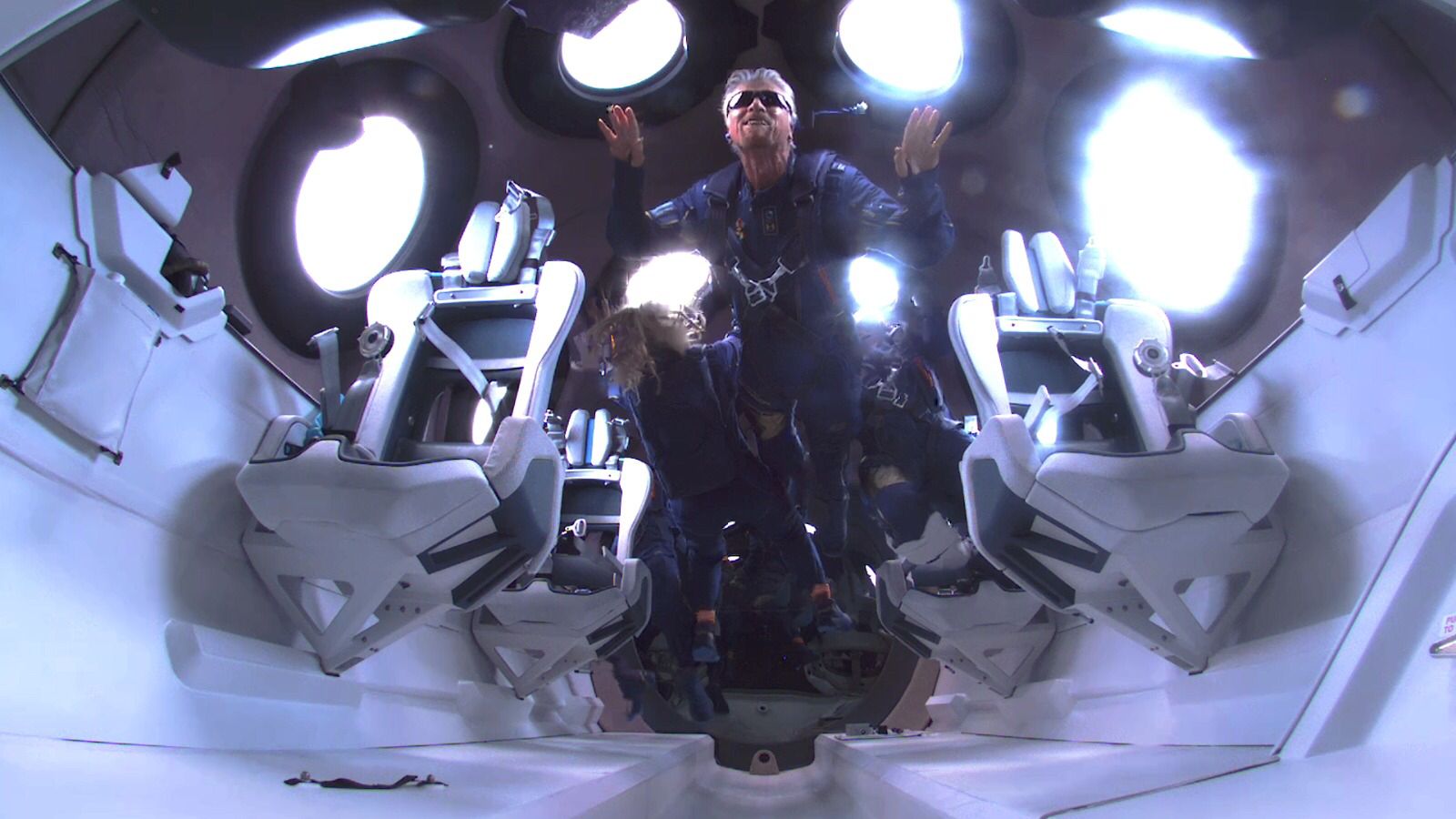Virgin Galactic was a vanity project—then it saved Richard Branson’s airline
When Richard Branson reached the edge of space in Virgin Galactic’s rocket plane on July 11, he was hailed as the first person to leave the earth in a vehicle he owned himself. What might be more notable is how much less of it he owns today than he did less than two years ago, when it went public.


When Richard Branson reached the edge of space in Virgin Galactic’s rocket plane on July 11, he was hailed as the first person to leave the earth in a vehicle he owned himself. What might be more notable is how much less of it he owns today than he did less than two years ago, when it went public.
The space tourism company has spent the last 17 years developing an air-launched rocket plane capable of carrying passengers and scientific payloads on brief trips 86 km (53.5 miles) above the earth. In 2019, it became the first publicly traded spaceflight company.
At the time, the company’s forecasts for operations and revenue were seen as unlikely at best, and that has proven true, thanks in part to the pandemic. Even after this flight, there were no announcements about regular passenger service. But that hasn’t stopped investors from buying into the firm—or Branson from cashing out, garnering $818 million in the process.
The sales of shares defied expectations and had an additional benefit: When his more traditional businesses, including the airline Virgin Atlantic, needed a bail out, Branson was able to raise money from a company widely seen as a vanity project.
As the pandemic put the squeeze on global travel in early 2020, Branson’s airlines suffered along with the rest of the sector, cutting jobs and routes. In late April, Branson offered to pledge his private island home as a security for a UK government bailout, and in the following weeks, his holding company sold nearly $570 million worth of Virgin Galactic shares.
Ultimately, he was forced to sell Virgin Australia, and Virgin Atlantic required a $1.2 billion agreement to reduce debt and invest more money in the company—which included £200 million ($278 million) from Virgin Group, Branson’s holding firm.
“Overall, Richard Branson and the Virgin Group have committed more than $390 million since the start of the crisis to support the Virgin companies impacted by the pandemic,” a Virgin Group spokesperson said, adding the proceeds April’s sale of Galactic stock will “support its portfolio of global leisure, holiday and travel businesses that continue to be affected by COVID-19, in addition to supporting the development and growth of new and existing businesses.”
Virgin Galactic benefits from SPAC investors
The sales have led Branson’s share of the firm to plummet from nearly 60% after the IPO to just 24%, worth about $2.3 billion at market close yesterday, and he remains the largest single shareholder. Chamath Palihapitiya, the venture investor whose special purpose acquisition company (SPAC) acquired Virgin Galactic, sold his entire stake in the company in March 2021.
Despite missing its 2019 targets—like flying more than 600 passengers to the edge of space by the end of this year—Virgin Galactic’s share price has been buoyed by the passion of retail investors, epitomized by Redditors on r/WallStreetBets, who were attracted to the unique company and helped send its market value as high as $14 billion earlier this year.

Branson is set for more dilution, however. Virgin Galactic announced it would strike while the iron is hot and sell $500 million in new shares following Branson’s successful trip on July 11. Some of those retail investors were disappointed by the news, decrying the move to bolster the firm’s capital as a “pump and dump” scheme.
Still, it’s unlikely that Branson has broken even on his investment in the space start-up. While exact figures have not been disclosed, Branson has likely spent $1 billion or more developing the company’s spacecraft—in 2019, Virgin Galactic said it was losing approximately $190 million each year. The company’s other major shareholder is the UAE sovereign wealth fund Mubadala, which owns just over 5% of the company after investing $280 million in 2009.